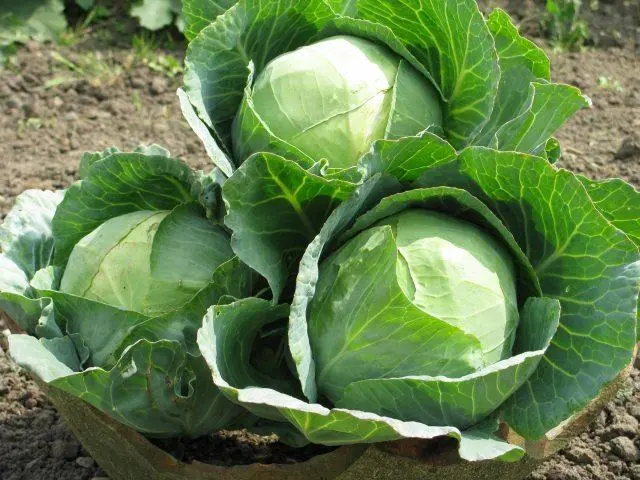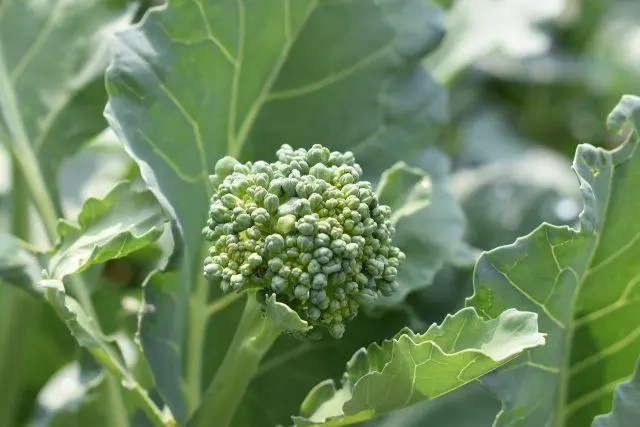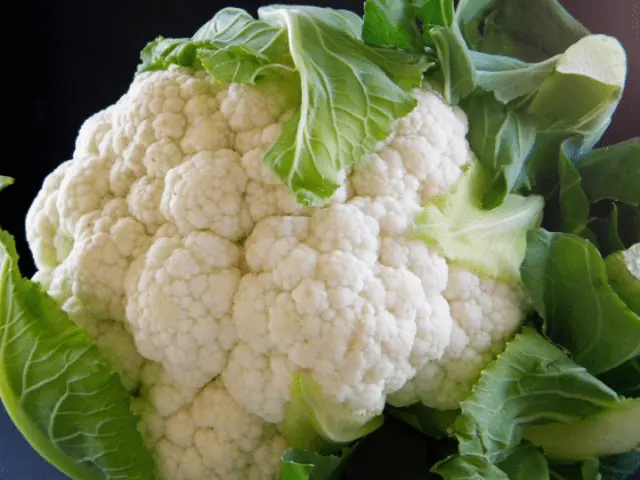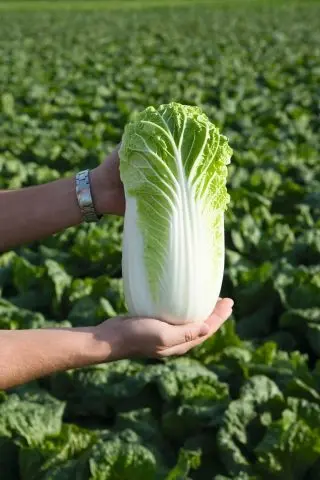Contents
Watering cabbage in the open field, carried out in accordance with agrotechnical rules, will be the key to a good and healthy harvest of this useful vegetable crop. If the irrigation conditions are observed, the heads of cabbage will not crack, retain their appearance and marketability, and will also have good taste. Since the growing conditions, as well as the types of cabbage, are different, the rules for moisturizing them, depending on many factors, also differ, which should be taken into account when performing this important care procedure.
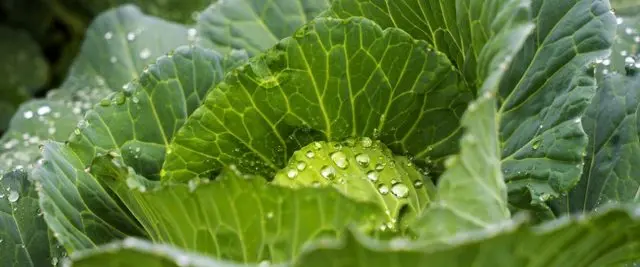
It is recommended to moisten cabbage in the open field, taking into account all the features of its cultivation.
How to water cabbage in open ground
For cabbage, proper watering is very important. It directly affects the aroma and juiciness of heads of cabbage. Only with the necessary volume and quality of the liquid, the culture will develop properly and bring a decent harvest. Moreover, this rule applies to different types of cabbage, whether white or colored varieties – it does not matter.
The basic rules that should be followed when moistening cabbage beds are as follows:
- Irrigate early in the morning (in the northern regions) or in the evening (in the south).
- To carry out watering both under the root and by sprinkling.
- Use water at the optimum temperature.
- Observe the frequency of procedures and make a sufficient amount of liquid.
Is it possible to water cabbage with cold water
When cabbage is grown outdoors, it is necessary that the water that will be irrigated has the optimum temperature. This type of vegetable crop grows comfortably and gives a full harvest only if the liquid is warm and settled. To do this, it is first poured into containers, where it heats up faster, and all harmful impurities settle to the bottom.
Cold watering cabbage is contraindicated. The optimum temperature of the water used should be within + 18-23 ° C, and the temperature of +12 ° C and below is detrimental to the plant.
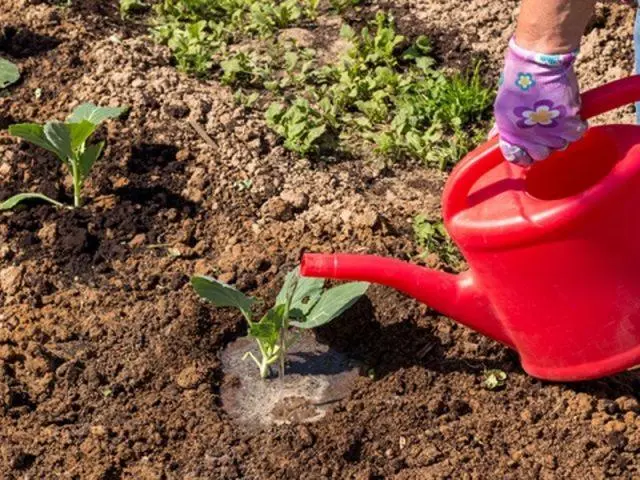
Do not use water from a well or well to irrigate the crop.
You can water the cabbage during the heat
Since this plant is moisture-loving, it is necessary to moisten it even in hot weather. Moreover, in order to maintain the level of moisture, the frequency and rate of watering cabbage in the heat should be increased. During the dry period in the open field, 5 liters of water are spent under each bush every two days.
How often should cabbage be watered
The number of irrigations of cabbage in the open field depends on a number of characteristics. This is influenced by the ripening time, the type of crop, the type of soil, as well as the growing season of the plant. When scheduling watering, consider the type of terrain and weather conditions of the season. But the main thing to know is that most of all the plant consumes liquid in the process of forming a fork. Usually, at the stage of adaptation of young seedlings in open ground, it is watered every day, then the amount of moisture is reduced to once every three days, spending 8 liters per square meter. m., then irrigate a couple of times a week at 12 liters per square meter. In autumn, watering the cabbage is completely stopped.
Depending on maturity
When cultivating early varieties of cabbage that are especially demanding for moisture, they are intensively irrigated in June, and abundant watering of late cabbage is organized in August, when it reaches its maximum growth.
The moisturizing scheme depending on the ripening period is as follows:
- early varieties begin to water a couple of days after planting and finish two weeks before harvest;
- late varieties are moistened on the day of planting, and then a week later and finished a month before harvesting.
Depending on the type
Depending on the type of crop, its irrigation in open ground is carried out as follows:
- White-headed. This species needs moisture more than others. If its moisturizing is carried out in insufficient quantities and not according to the rules, then the leaves of the heads of cabbage will become dry, hard and tasteless.

One bush of white cabbage requires at least 3 liters of water per watering.
- Broccoli. A species that is also demanding on humidity.

Broccoli needs 15 liters of liquid per 1 sq. m. plot once a week
- Cauliflower. Requires not so abundant watering.

It is enough to irrigate cauliflower four times a month, spending a bucket of water.
- Chinese cabbage. Type of early culture.

Watering the Beijing species needs regular, but in small doses.
Often watering cabbage is combined with its top dressing.
Depending on soil type
If cabbage is cultivated in dense open ground, then moisture stagnation often occurs in it, therefore, under such conditions, the moisture content of the beds must be constantly monitored and watered only when necessary. In the case of light soil, water is absorbed into it quickly and is almost not retained, so moisturizing should be carried out more often. On marshy land or peatland, the culture grows only if there is good drainage, and in acidic open ground, its planting is completely contraindicated.
At different growing seasons
Depending on the growing season, the plant is watered, adhering to the following rules:
- At the initial stage, after planting seedlings, moistening is carried out every 2-3 days, spending 2 liters of liquid per bush.
- At the time of head formation, the frequency of irrigation remains the same, but the volume of water is increased to 5 liters.
- After the completion of the growth of the forks, in August-September, it is enough to water the cabbage, spending 2 liters of liquid 1-2 times a week.
Methods for watering cabbage
Currently, gardeners practice several ways to water cabbage growing in the open field:
- traditional (along the furrow);
- drip;
- sprinkling.
In particular, owners of small gardens use traditional watering, as others are considered more expensive and require special devices.
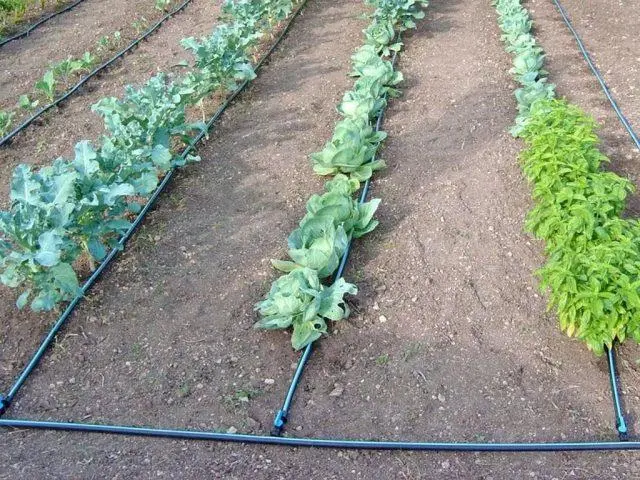
Each irrigation method has its own advantages and disadvantages.
Traditional
Standard irrigation of cabbage in open ground, which is carried out with a watering can or through a hose, along the furrows. As a rule, this method is started at the moment when the seedlings are already adapting to the new planting site and are getting stronger enough. At the same time, at any stage of the development of the culture, the water pressure should not be strong. It is allowed to irrigate bushes from above only early in the morning or in the evening, after sunset.
Drip irrigation of cabbage in open ground
The drip irrigation option for cabbage is very effective and convenient, but at the same time the most expensive, it is better to use it not in open ground, but in a greenhouse or use it when care is required for a large plantation or it is not possible to devote a lot of time to the site. For this method, you will need to purchase a special, rather expensive installation that activates a system that allows water to flow to the cabbage roots in moderate portions. The advantages of drip irrigation are that it maintains a loose soil structure, helps maintain the desired level of moisture and allows you to prevent stagnation of moisture, as well as drying out of the earth. It is enough to run the system for three hours before the formation of heads and for a couple of hours after they appear.
Sprinkling
Sprinkling cabbage bushes in the open field means watering it over the leaf. This method, like the traditional one, is only suitable for grown plants and is not suitable for newly planted seedlings. In addition, this type of irrigation will require a special system consisting of a portable pipeline and nozzles, with the help of which water will be supplied regularly and in small quantities.
The disadvantage of such a procedure is the financial costs, as well as the need for frequent loosening of the beds.

The sprinkling method can be used on any type of soil
When do you stop watering your cabbage?
It is also important to finish watering the cabbage on time, taking into account the fact that it is in what phase of development. In open ground, under normal conditions, it is recommended to completely stop watering about 20 days before harvesting. Approximately this is the first decade of September. But the timing may shift slightly depending on the region where the vegetable is grown, climatic conditions, rainfall and soil conditions. Watering cabbage in October is completely pointless.
Conclusion
Watering cabbage in the open field is an integral part of caring for this moisture-loving crop. In order to get a decent harvest from it as a result of growing a plant, the procedure must be performed correctly. In addition, it is important to determine the moment to stop watering the cabbage, this also has a considerable impact on the presentation and taste of heads of cabbage.










